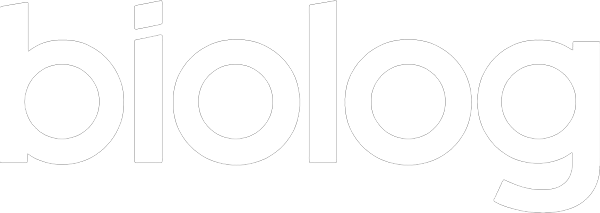Webinars
Webinars
Advantages of multiomic microbial identification.
We cover multiomic identification: unveiling the identities of bacteria, yeast, and fungi from all angles.
Genotypic Analysis: Deciphering genetic codes with Sanger DNA Sequencing. Sequencing of ribosomal RNA regions of bacteria and fungi.
Proteotypic Profiling: Exploring protein landscapes through Bruker MALDI-TOF. Analysis of ribosomal proteins.
Phenotypic Insights: Odin’s lens into microbial behaviors. Analysis of biochemical reactions, acids and salt tolerance, metabolism, fermentation, etc.
We review Biolog’s solutions to identify thousands of aerobes, anaerobes, yeast, and filamentous fungi.
Unveiling Environmental Microbial Mysteries: Harnessing the Phenotypic Approach
Biolog’s phenotypic method allows researchers to observe and quantify the metabolic capabilities of environmental microbial communities in a plethora of different environments: soil, water, plant, human-associated and engineered ecosystems. With an easy-to-use protocols, EcoPlates, Phenotype MicroArrays and Identification test panels could be effectively employed to define the functional traits of bacterial and/or fungal populations in both aerobic and anaerobic settings.
This webinar will show how Biolog’s approach works with complex microbial communities, what type of data it can generate and how it could complement metagenomics dataset and add the additional insights with the use of the fully automated Odin instrument. The presentation will also show key case studies where the Biolog technology has been used in the evaluation of environmental health, sustainable agriculture and soil management and even show some non-standard use of this flexible phenotypic tool.
Unlocking Microbial Genetics: Leveraging Phenotyping for Comprehensive Analysis
Learn more about the power of phenotyping to further characterize your microbes. Explore how correlating genetic differences with thousands of cellular phenotypes can more precisely characterize microorganisms.
In this webinar, learn how phenotyping enables:
• Correlation of functional traits with genotypes
– Determination of metabolic and chemical sensitivities
– Elucidation of drug sensitivity and susceptibility • Optimization of cell lines and bioprocess culture conditions
– Characterization for taxonomic or epidemiological studies.
Whether you conduct experiments in your lab using Odin, or let our Lab Services team do the characterization and identification for you, uncover how this approach can revolutionize your microbial analysis.
Biolog for Fungal Identification
Lab Services now offers a customized approach to challenging filamentous fungal ID.
With our novel method for subculturing, sample lysis and proprietary media that reduces contamination risk, we can now:
– effectively prepare the fungal samples
– ensure quick, effective, and accurate sample identification
– all in an average of 3 business days, or as fast as next day
Elucidating Metabolic Networks in the Tumor Microenvironment
Costas Lyssiotis, PhD, and his team have been studying pancreatic tumors and provided foundational work describing autonomous reprogramming of metabolic processes in the cancer cells that facilitates their survival and growth under these challenging circumstances. Pancreatic cancer cells also work cooperatively with non-cancer cells in the tumor microenvironment through the exchange of growth factors, signaling molecules and metabolites.
Rapid Microbial Identification with MALDI-TOF Technology: Navigating the Fast Lane
In a world where speed, accuracy, and affordability rarely align, the emergence of MALDI-TOF technology has rewritten the rules for microbial identification. Join us for an insightful webinar as we delve into microbial identification, now revolutionized by MALDI-TOF. At Biolog Lab Services, we’ve seamlessly integrated this cutting-edge technology into our microbial identification and characterization suite. In this session, we’ll introduce you to the power of MALDI-TOF, highlighting its suitability for microbial identification, and shed light on how our implementation of this technique synergizes with other contamination identification and microbial classification methods.
Don’t miss this opportunity to explore the fast lane of microbial identification!
The Powers of Odin: Comprehensive Cellular Characterization
Prokaryotic and eukaryotic cells change and adapt to their environments in ways that genomic characterization methods do not fully capture or predict. Even strains of the same species of microbe can show key differences in pathogenicity or sensitivity. Phenotypic analysis provides a complementary method for effectively characterizing the functional properties of cells. Biolog Phenotype MicroArray panels with redox reporter dyes have made this type of analysis possible for many years, as researchers grow their organisms under thousands of different pre-selected conditions at once to produce a functional metabolic readout. Biolog’s new Odin platform takes phenotypic characterization a step further, as kinetic data for both growth and respiration can be collected and analyzed simultaneously. We’ll show how measuring these two parameters on the new all-in-one system can be used to generate rich and informative data for comparing and characterizing cells.
Crack Your Microbial Contamination Mysteries with Biolog Lab Services
Microbes are everywhere, but often in places where you don’t want to discover them. There are many complementary techniques to identify microbial contaminants. Genotypic microbial identification via Sanger sequencing is a fast, inexpensive and straightforward approach to classify thousands of different potential yeast and bacterial contaminants. We’ll explain Sanger Sequencing, from its historical roots to the cutting-edge advancements implemented by our Lab Services group. Whether you are a researcher, in manufacturing or other industries, see how our DNA sequencing services can help answer your ID questions and resolve your issues quickly.
See Clearly with Odin: A Fresh Look at Microbial Metabolism
Metabolic phenotypic analysis is a method for quantitatively assessing effects of genomic changes on the metabolism of microbes. Cells are grown under thousands of different substrates at once to produce a functional metabolic readout. In the presence of a reporter dye, cellular respiration can be measured and compared across strains, producing comprehensive metabolic profiles for each strain. Dye formation alone may not fully inform the metabolic profile since biomass changes throughout the experiment. In some cases, cellular growth and respiration are discordant, so a method to determine both is required. Here we’ll introduce new methods and instrumentation that enable reporting on growth and respiration simultaneously, as well as demonstrate the benefits of kinetically measuring these parameters to create a more accurate metabolic profile.

